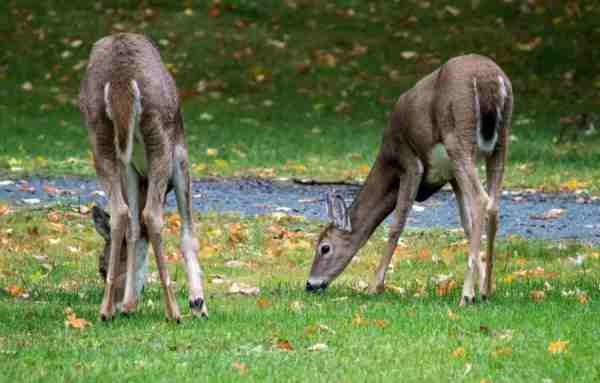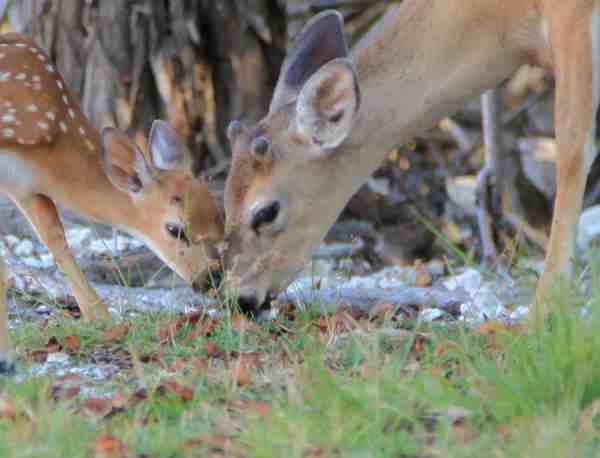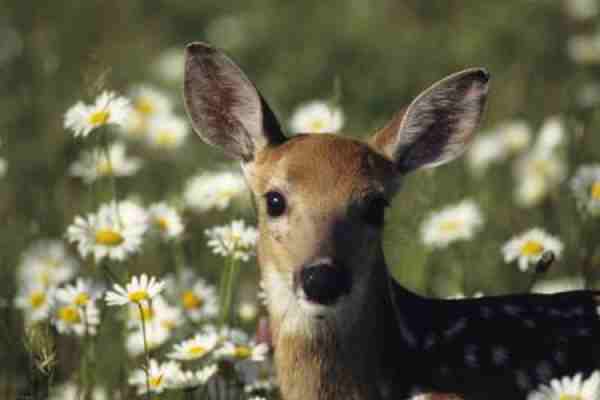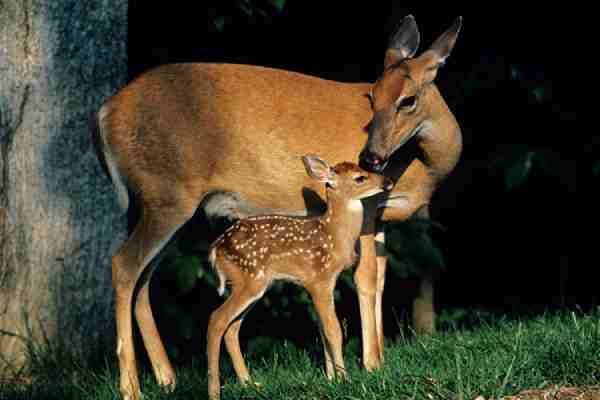Mice are constantly on the lookout for predators that might be lurking around the corner. Although mice are frequently hunted by many animals, there is one creature that likely does not come to mind- deer. It’s not often that you see a deer eating a mouse or any other small animal. This is because deer are primarily herbivores and rely mostly on plant-based food sources.
Table of Contents
However, in certain circumstances, deer may resort to eating mice and other small animals if they have no other options available. Throughout this article, we’ll explore the reasons behind deer’s uncommon meat-eating habits and how often they occur in the wild. Let’s find out more about this curious phenomenon.
Do deer eat mice?

Although they are generally known as herbivores, deer have been observed feeding on mice. Biologists have yet to determine why some animals turn to meat in their diet despite their digestive systems being better suited for plant-based foods.
The most common reason among creatures that transition to a carnivorous diet is a fight for survival during times of scarcity when plant sources are limited. Another contributing factor is the additional protein and mineral sources found in animal meat.
It seems that survival demands dietary flexibility, and when it comes to meat, most animals are opportunistic creatures that won’t miss a chance to gain an advantage in the rigorous struggle for survival.
Related Article: Do Deer Eat Mushrooms? The Ultimate Guide
How often do deer eat mice?
Contrary to popular belief, mice and other meat-origin food are not the main food source for deer. While they might resort to consuming animal protein during the harsh winter months, the majority of their diet consists of plant matter. Leaves, twigs, grasses, forbs, nuts, and fruits are all fair game for these ruminants.
Interestingly, they’re not finicky eaters and will readily consume whatever plants are available in their habitats. However, when the winter landscape is barren and nutritious plants are scarce, deer will turn to meat as a means of survival. The energy from the animal protein may be more abundant, or it could be that high-quality plant material is simply non-existent.
Regardless of the reason, it’s clear that deer are opportunistic in their feeding habits, relying on whatever food sources are available to them.
How do deer catch mice?

Many people have a misconception that deer actively hunt down smaller animals like mice. However, this is far from the truth. Deer are not predators but rather passive creatures that are often preyed upon by other animals. They are built for grazing and browsing on vegetation, not for hunting down meals. In rare circumstances, deer would eat smaller animals like mice. They would usually do this if they stumble upon a dead one or find an injured or dying mouse.
Related Article: Do Deer Hibernate or Migrate? [Winter Behavior Facts]
What other animals do deer eat?
While it’s not common knowledge, deer have been known to eat small animals such as rabbits, birds, and squirrels in rare circumstances. However, the most easily accessible and vulnerable prey for these herbivores is baby birds in nests.
With a lack of predatory instincts and no specialized abilities to hunt, deer take advantage of their environment, stumbling upon nests in the wild and consuming the defenceless chicks within. Though not a typical diet for deer, the presence of baby birds may be too tempting to resist.
What happens when herbivores eat meat?

The classification of animals as either herbivores or carnivores often presents a fine line. Traditionally, we have been taught that herbivorous creatures solely subsist on plant matter. However, several herbivorous mammals, including deer, have exhibited occasional carnivorous behaviour.
Examples of such animals encompass pandas, horses, cows, and hippos. In order to effectively digest meat, animals require a specialized digestive system, which is typically underdeveloped in herbivores. Nonetheless, this does not imply that herbivorous animals are incapable of digesting meat, but rather they may not possess optimal efficiency in doing so.
Consequently, for most herbivores, meat consumption forms only a small fraction of their overall diet. Ingesting some meat does not typically have adverse effects on herbivores. However, deviating entirely from their natural diet and consuming only meat would be entirely contrary to their regular feeding habits.
Final Words
Animals’ eating habits have always fascinated us with their diversity and complexity. Recently, studies have shown that deers have an uncharacteristic taste for mice. Though the main source of their nutrition comes from plant origin matter, deers would resort to eating mice or other animals as a means to supplement their diet or get extra minerals and proteins from the meat.
These findings raise questions about our current understanding of animal diets. Are there still things that we do not know about the complexities of their diets? Do animals’ eating habits evolve and change during different life conditions? These are interesting questions that scientists continue to explore, uplifting our knowledge about the intricate behaviours of these creatures.
Reference:
- https://www.popsci.com/5-disturbing-meat-loving-herbivores
- https://www.deerbusterscanada.ca/blogs/news/do-deer-eat-other-animals
- https://extension.umn.edu/my-minnesota-woods/how-identify-deer-browse-woods
A motivated philosophy graduate and student of wildlife conservation with a deep interest in human-wildlife relationships, including wildlife communication, environmental education, and conservation anthropology. Offers strong interpersonal, research, writing, and creativity skills.










